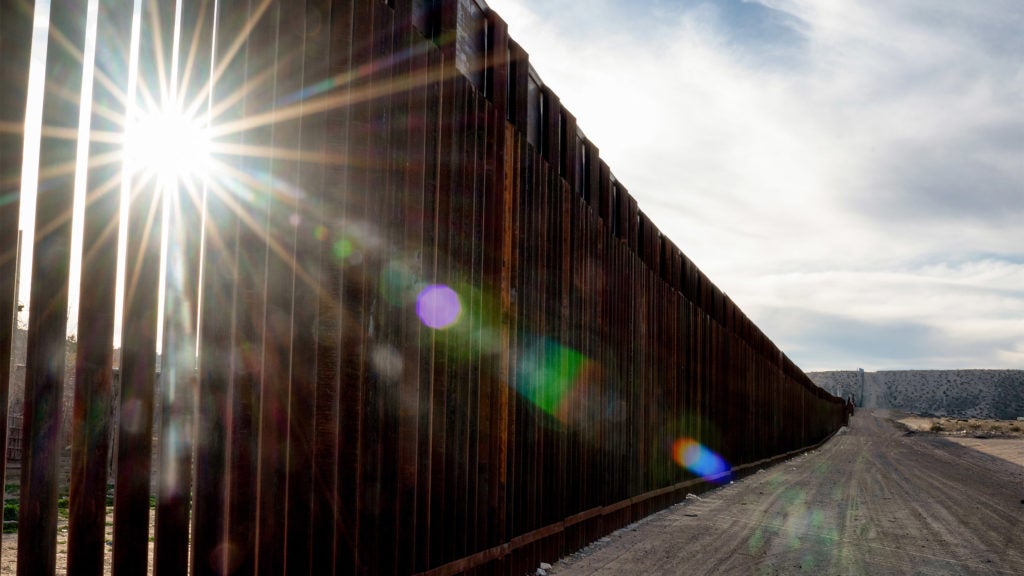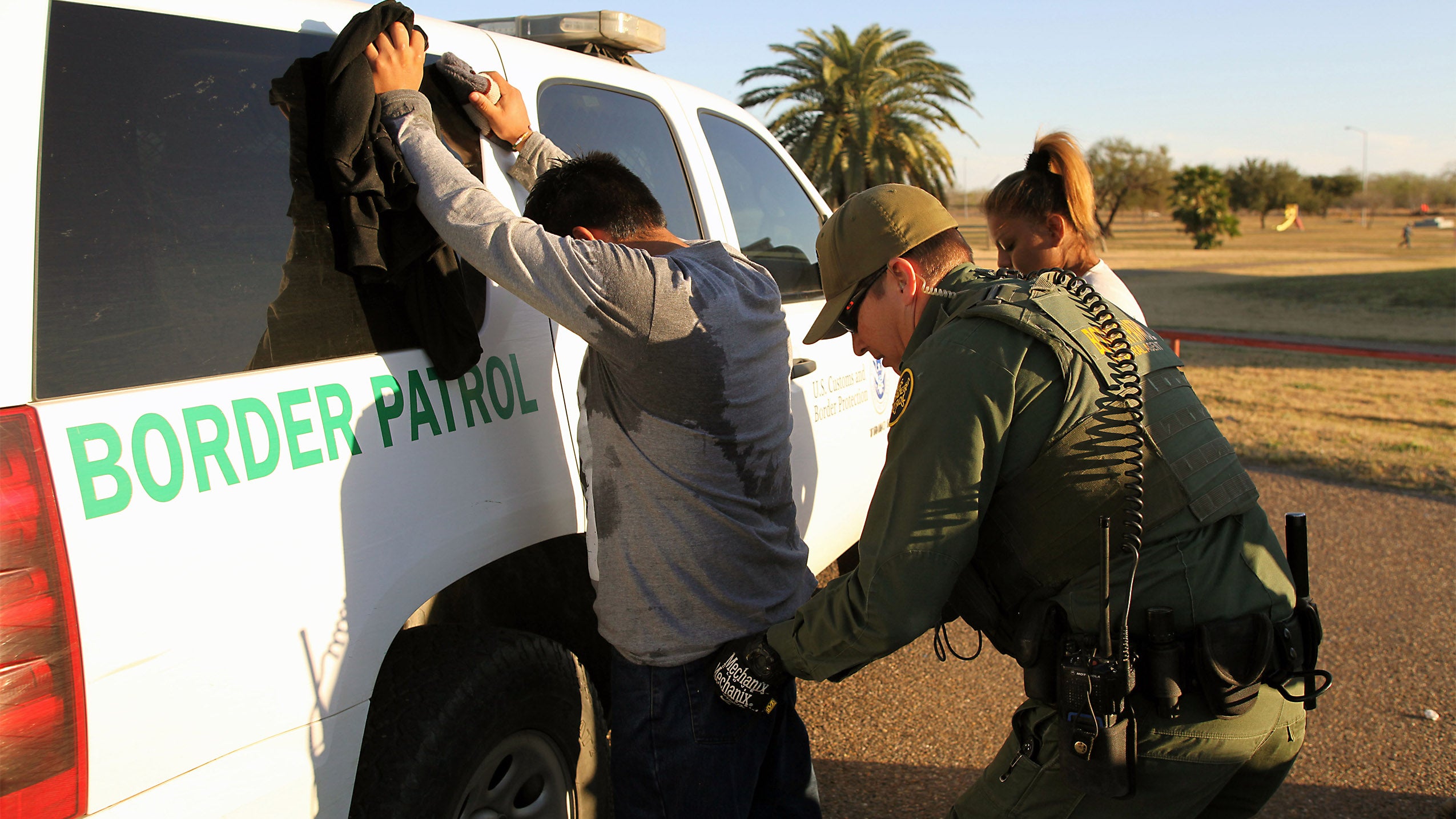Raymond* lived as a legal permanent resident in Arizona for nearly 30 years before being apprehended by local law enforcement and charged with possession of narcotics with the intent to sell. Not long after serving time in prison for his offense, the father of three spent seven months in La Palma Detention Center.
This was Raymond’s first criminal offense, but one that almost got him deported. Immigrations and Customs Enforcement (ICE) argued that his prior criminal conviction was one of the disqualifying crimes that makes someone with legal status in the U.S. deportable. Although Raymond had paid his debt to society in prison, the government said his offense prompted a second and grave consequence: leaving the United States for good. The Crimmigration Clinic at Harvard Law School, which represented Raymond, challenged the government’s claim and eventually proved them wrong. An Arizona immigration judge ruled in Raymond’s favor, but ICE appealed the decision, arguing that Raymond’s conviction triggered a provision under federal immigration law that required his removal.
Criminalizing immigration status has been increasing over the past twenty-five years, according to Phil Torrey, the managing director of the Crimmigration Clinic at Harvard Law School. Crimmigration—the intersection of criminal law and immigration law—became a burgeoning field of law in the late 1980s and ‘90s when Congress passed a number of measures responding to concerns of unauthorized immigration. These policies made many more types of crimes by noncitizens deportable, emphasized border enforcement and increased the use of detention facilities.
Numerous studies have shown that immigrants are less likely to commit crime than native born U.S. citizens, and the numbers are even lower for immigrants like Raymond that are lawfully present. A 2018 report from the Department of Justice (DOJ) stated that almost 7 percent of the “known or suspected aliens” in DOJ custody were legally present and undergoing removal proceedings. According to a 2018 U.S. Sentencing Commission report, immigration offenses and minor drug related offenses are the most common crimes of noncitizens.

An expert in crimmigration law for over ten years, Torrey says, “there has been an exponential increase in prosecution of certain federal crimes and the use of criminal enforcement mechanisms in the immigration context.” Immigration infractions are one of the most federally prosecuted crimes, including drugs, firearms, and fraud according to the Sentencing Commission’s recent report. Just over 200 private immigration detention facilities currently exist across the country housing close to 400,000 individuals. The Pew Research Institute found that “immigrants with past criminal convictions accounted for 74 percent” of all U.S. Immigration and Customs Enforcement (ICE) arrests in 2017. Many of these offenses, however, are minor and can be classified as non-violent drug offenses, or simply re-entering the U.S. without authorization.
“Deportation is an extreme consequence for many of the charges,” Torrey said, “but efforts to decouple criminal and immigration law from the federal government are unlikely to happen during this administration.” Torrey noted that many local and state jurisdictions like Philadelphia, Chicago, and Boston have established protections that block local resources from aiding civil immigration enforcement efforts ICE.
2020 Democratic presidential candidates have voiced ideas for decriminalizing immigration if elected. Presidential hopefuls Julian Castro and Elizabeth Warren supported repealing Section 1325 of the U.S. Code which makes entry into the U.S. a criminal offense. Torrey thinks that “decriminalizing unlawful entry and re-entry would be a tremendous first step in ensuring an immigration system that remains civil rather than criminal and protects individuals with bona fide asylum claims.” Castro and former Vice President Joe Biden say that immigration enforcement should focus on individuals with “serious” or “major” criminal convictions—similar to what both President Obama and President Trump claimed to prioritize—but it is unclear whether there would be mitigating provisions for individuals with legal status like Raymond. It’s also unclear what would be considered a “serious” or “major” conviction.
While Raymond was detained, Immigration and Customs Enforcement (ICE) officials confiscated his green card, which isn’t supposed to happen, according to Torrey. Raymond’s time in the detention center was “very stressful.” “I suffered a lot when I was inside there being away from my family. They give you bad food, there is no attention, and they treat you very bad. I was hopeless.” He also said the facility was overcrowded, estimating that, “there were maybe 3,000 people in the center while I was there.”
When ICE appealed the immigration judge’s decision, the case moved up to the Board of Immigration Appeals, (BIA) the administrative appellate body responsible for immigration-appellate appeals. An HLS alumnus who monitors the BIA docket at the Catholic Legal Immigration Network, Inc. (CLINIC), a non-profit organization that provides legal services for immigrants, referred the case to the Crimmigration Clinic. Torrey and two Harvard Law School students, Joy Lee ’19 and Harry Larson ’19 represented Raymond during the appeals process. Torrey and the students were based in Cambridge—some 2,500 miles away from Raymond who was detained in Arizona. Their only interaction was through the phone and mail. “I had a lot of confidence and patience. I trusted them,” Raymond said when reflecting on his experience with the students.
The clinical students argued that in Raymond’s case, the federal drug schedule—categories of drugs classified by the drug’s safety, the potential for abuse or dependency, and acceptable medical use—did not match Arizona’s drug schedule, and therefore did not qualify as the type of crime that should make Raymond deportable. The team was victorious in upholding the immigration judge’s ruling, allowing Raymond to stay in the country he knows as home. “The clinic helped me a lot. Thank God.”
Raymond was successfully released from the detention center in December 2018. In the time since, Raymond resumed his job in maintenance and construction and found an apartment for himself. “I have a different perspective on life,” he said and he was happy to be working again. He was released around the start of the government shutdown, which made it an administrative headache to try and retrieve his green card. Six months later, he’s still missing his green card, which means he can’t travel to Mexico to see his family. “It’s been 4 years since I’ve last seen my kids. What I need is help, for them to give me back my green card. If I don’t get it back, I don’t know what I’m going to do.”
*Names changed for the client’s confidentiality.
